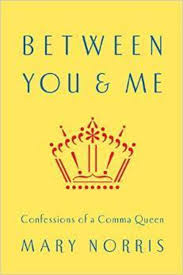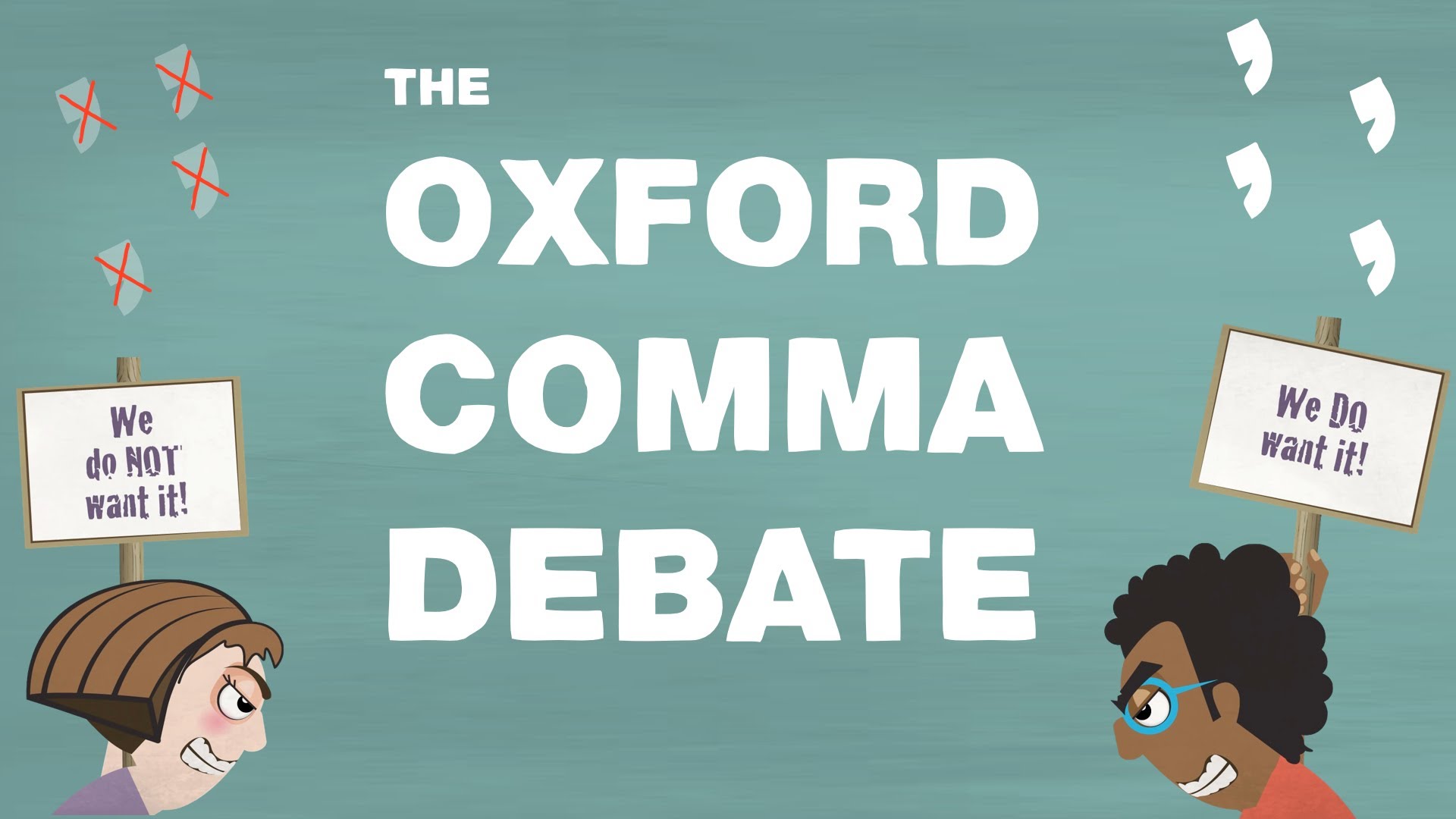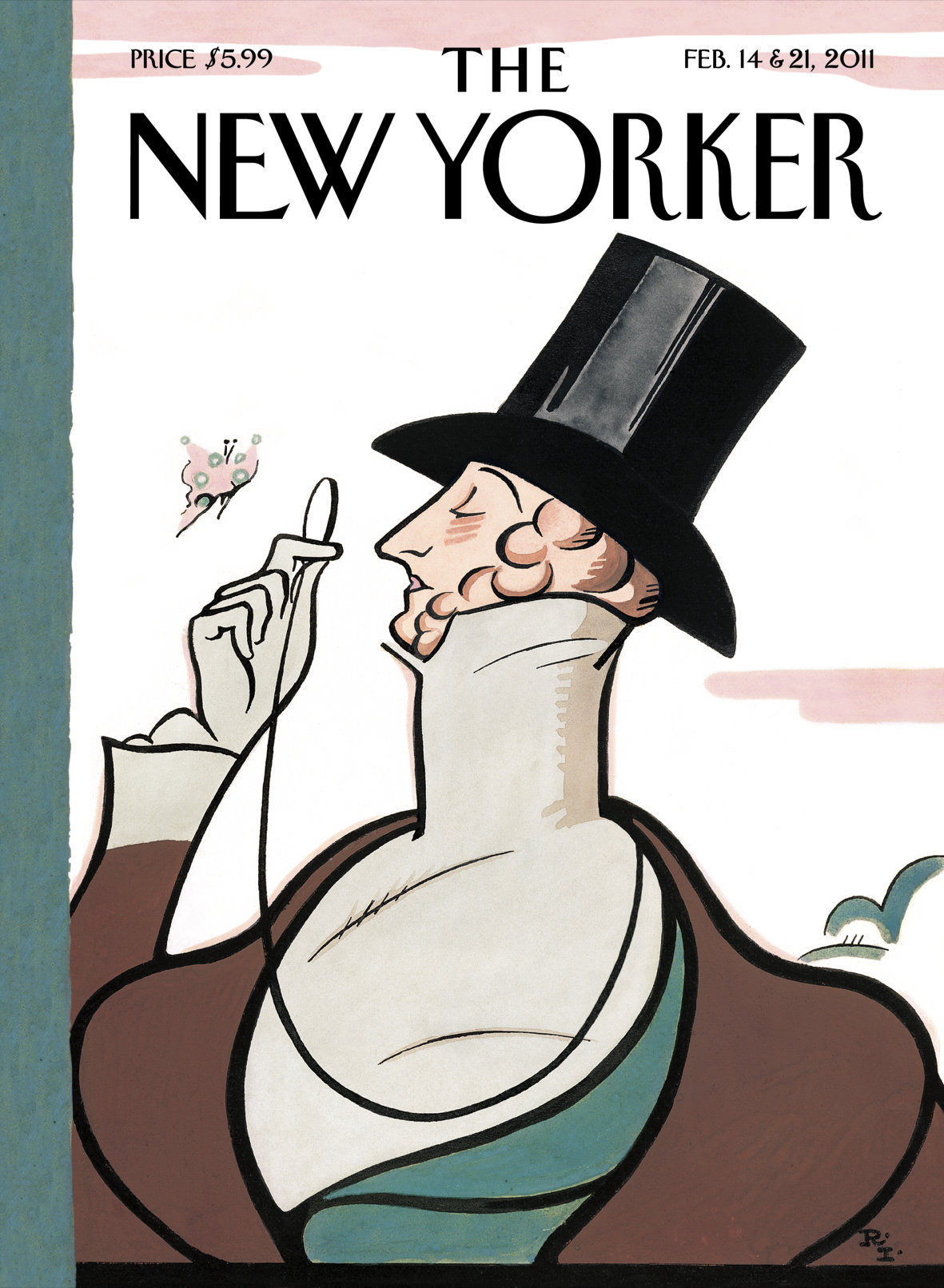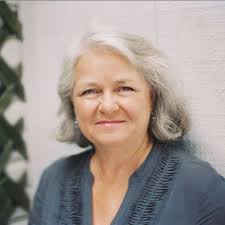This book from a major New York City publisher has had a big push. It pops up on web sites, newspaper review pages, NPR programs, and more.

I took the bait, remembering how much fun reading ‘Eats, Shoots and Leaves’ (2003) by Lynn Truss was. Inspired by reading that I tried Jacques Barzun’s ‘Simple and Direct: A Rhetoric for Writers’ (2001), and it, too, was entertaining and enlightening, but much heavier going, and at about page 50 I cut Jack loose. It was too much! It was like getting an assignment back from Miss Moses in junior high school drenched in the Red Sea of ink flooding over each page. (The name has been changed to protect the guilty.) She did not know when to quit and neither did Jack.
In ‘Between you & me’ the usual suspects appeared in the lineup. Among them were the evil twins Who and Whom, the hyphen, and the serial comma.
Who is on first? That is the nominative case. To whom did I give the keys? That is the accusative case (aka dative case). Got it? The doer is nominative and the done to is accusative. With me? It gets more complicated with noun groups and compounds, but I left the train before that. Their cousin, possessive case, Whose is best left for the advanced course.
The hyphen is just too hard for me. Compound nouns seldom take it but the words rendered as a compound adjective must. The boarding house fell down. But the boarding-house fire was bad. See? Sort of, but not for long. It turns out Herman Melville’s whale was Moby Dick but his book about Moby Dick was Moby-Dick. Sit down and think about that. Then there is breaking words over lines with hyphens. Is it at the first syllable. the first pair of consonants, or at the first meaningful break? Eng-land or En-gland or Eng-land. Two out of three? Grammar does not accept such populist methods of decision-making (or is that ‘decision making’).
My favourite is the serial comma which I learned way back in Hastings on the Platte to call the Oxford comma; so called because it was prescribed by the Oxford University Press, which was regarded along the Platte as the highest court for punctuation, though patriotism required Noah Webster’s spelling. The Oxford comma is that one before ‘and’ at the end of series, as in ‘eats, shoots, and leaves.’ This by the way illustrates one of the features of John Stuart Mill’s rule-utilitarianism. That last comma is not always necessary but it is best to include it because it is too time-consuming to decide if it is needed in this or that instance and that decision may be mistaken. Just follow the rule, and include it.

I have enlivened many dinner parties by bringing up the Oxford comma, discovering that some people invest much of themselves in that little squiggle, the ‘,’ and their cool, detached, and cynical demeanour slips entirely when it is bruited. People who yawn at important topics like man’s inhumanity to man, spitting by baseball players, or coal-seam gas, roll-up their sleeves for Indian wrestling when the serial comma is mentioned. (I feel free to say ‘man’s’ inhumanity to ‘man’ in the masculine since men are the principle culprits.) Defending the serial comma, I have alienated some guests who went away muttering never to return!
Back to Norris, there was a very informative and amusing aside on Noah Webster’s several efforts to create an American language, stimulated in equal measure by his patriotism and rationality. No less a figure than George Washington encouraged him in that endeavour. He had successes and he had failures. The ‘ou’ passed out of most American use and he made the ‘z’ do a lot more work than it did across the Atlantic, and, animated by the egalitarian spirit, he called it by its right name ‘zee’ and not that snobbish ‘zed.’ If it looks like a zee, acts like a zee, sounds like a zee, then call is ‘zee.’
Webster’s failures may outnumber his successes. His multiple efforts to match sound values to sight did not always carry the day, e.g., ‘cloke’ for ‘cloak’ and many of the same ilk died in the pages of his lexicography. I have resolved to read a biography of this Webster (and maybe one day Daniel Webster, too).
It was also an eye-opener to learn that any dictionary can take the name of Webster, and several have. But an heir to Noah always bears the name Merriam because the brothers Merriam bought the rights from the widow Webster when Noah died, and that company has continued to publish it. A dictionary titled ‘Internationl Websters’ or ‘Websters New’ is unlikely to have anything to do with the founder, Noah. I turned to my reference shelf and was glad to see that mine is a Merriam. I am now armed against such infiltrators in the future.
There was also a poignant moment when Norris quoted from a hand-written letter Jacqueline Kennedy sent to Richard Nixon in reply to his note of condolence when Jack was murdered to show how emotion is conveyed by punctuation. More importantly, to this observer it confirmed once again that Jackie was a higher being.
Emily Dickinson haunts the pages. Her poems, written privately like a diary, have presented editors and analysts a lifetime of challenges since she relied almost exclusively on the dash (—) for terminal punctuation, sometimes straight and level, sometime upward ascending, and sometimes downward descending, and some times wiggly. That combines with her very poor penmanship has created the space for many learned seminars to interpret her intentions and how best to convey them. When I read her poems (Saturday mornings at 8:00) I was unaware of that (and much else). Signing up for a class that met on Saturday at 8:00 am seemed like a good idea when I registered one semester as an undergraduate, so I did. By 9:00 am I would have knocked off another credit and have the day ahead. That was the plan. The reality was that it never seemed like a good idea on Saturday morning at 7:00 am.
I was impressed by the many editorial stages through which a ‘New Yorker” manuscript, once accepted, passes en route to the glossy page. The effort is great; the division of labor is elaborate; and the care is microscopic. Yet the product is largely ephemeral compared to the hubris that creates it.The elephant brings forth the mouse, a phrase I learned in Thailand when visiting Chulalongkorn University, meaning a great effort for a small result.

The difference between copyediting non-fiction and fiction was most interesting. It presents many challenges that have never crossed my mind when reading William Faulkner or John Updike. The details are many but perhaps the best illustration is that difference between the spoken and written language. That difference is a tension in fiction, whereas in non-fiction it is a rule. The imperative in fiction is let the author’s voice sound. Updike must sound like the prissy perfectionist and Ivy-League graduate he is and Faulkner must sound like the uneducated backwoodsman he is. But, yes there is a ‘but’ coming and it is a sizeable one, another thing I never considered.
If it appears in the ‘New Yorker’ does that henceforth make it right? If the magazine publishes one of Faulkner’s malapropisms, e.g., ‘most all’ for ‘almost all,’ will that cause its lemming-like readers all use that neo-logism? That the responsibility the ‘New Yorker’ bears in its self-assigned role as arbiter of United States English. [Sound of fife and drum.] Believe it or not, Ripley, decisions over punctuation at the ‘New Yorker’ are made against that national standard, and authors like Richard Ford have been subjected to editorial correspondence of some volume arguing over commas, what else?
By the way, getting that hyphen in ‘neologism’ above was a head-on struggle with automatic correct. Norris comments more than once on the habit of autocorrect to change things it ought not to change and the struggles at the ‘New Yorker’ to devise an in-house system to let it be itself. Regrettably nowhere does she discuss how it is that autocorrect got like that. Is it nature or nurture? Would remediation help?
I found no discussion of the relationship of quotation marks to punctuation, an old pet peeve of mine. I solved years ago, inspired by Mr Lloyd in high school, by opting for what I now know to be a Millian (as in John Stuart) solution by putting the punctuation inside the quotation marks to keep it tidy. I see this is common in North American publications and seldom seen in British publications. The lucky ones will not know what I am talking about.
Like all pedants I have bones to pick. Norris uses direct address, ‘you,’ frequently. Ugh. She also goes to considerable lengths more than once to use the F-word. Most of all there is that title. No, the ‘me’ is right in the accusative, but what about that ampersand? She spares not a word for ‘&’ which I revile in anything but grocery lists. The dentist says I grind my teeth, well I know why! Really, I expected better of the ‘New Yorker!’
I have treated all this with amusement but inside, I am very glad that someone takes the language seriously enough to work that hard at it. Why? Because most people do not, and the people I have in mind are authors and editors, not just teenagers who cannot be bothered.
There was a time when even Disney films cared about the language. Who can forget that touching scene in ‘The Lady and the Tramp’ (1955) when the latter explains to the former that a ‘dog lover’ without a hyphen is a dog. I remember this vividly because Miss Moses was overjoyed after it opened at the Rivoli on Second Street. She positively glowed, unlike the glower that was the norm on Monday mornings, Tuesday mornings, Wednesday… [etc.] and that was so unusual there was much comment among we grammarians, mostly by stolen glances and wrinkled frontal lobes, and some pinching to see if this was reality or a dream.
 Mary Norris
Mary Norris
Like most books rooted in the ‘New Yorker,’ it is snappy, breezy, and a 60-page article puffed up into hardcovers. While the meandering introduction is easy to read, I did not see the point of the recollection of dairy work, nor was it clear to me from the start what the purpose of the book was, though Norris is an amusing and informative companion for trip, the destination was never named.
In the absence of a higher purpose I read it as a memoir of her life and times as a copyeditor for the slickest of the slick magazines. The lustre of the ‘New Yorker’ will never dim in my eyes because it published Hannah Arendt when no other magazine would. Credit William Shawn with that.
Skip to content
